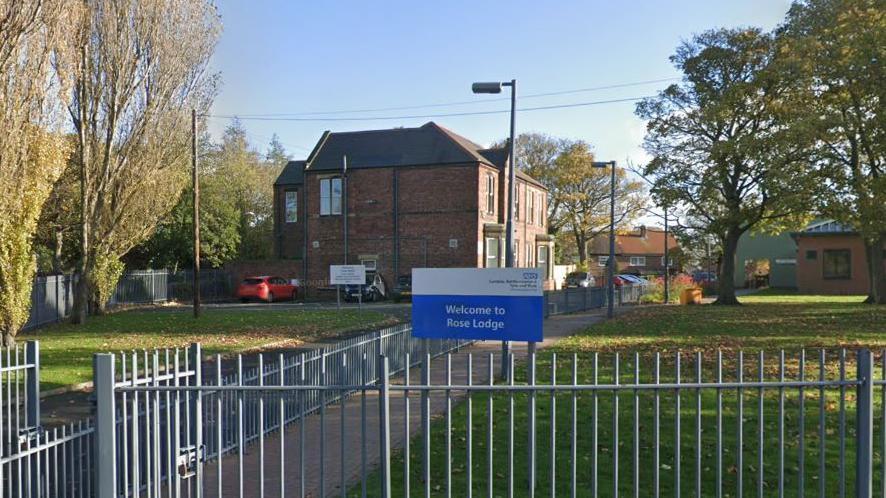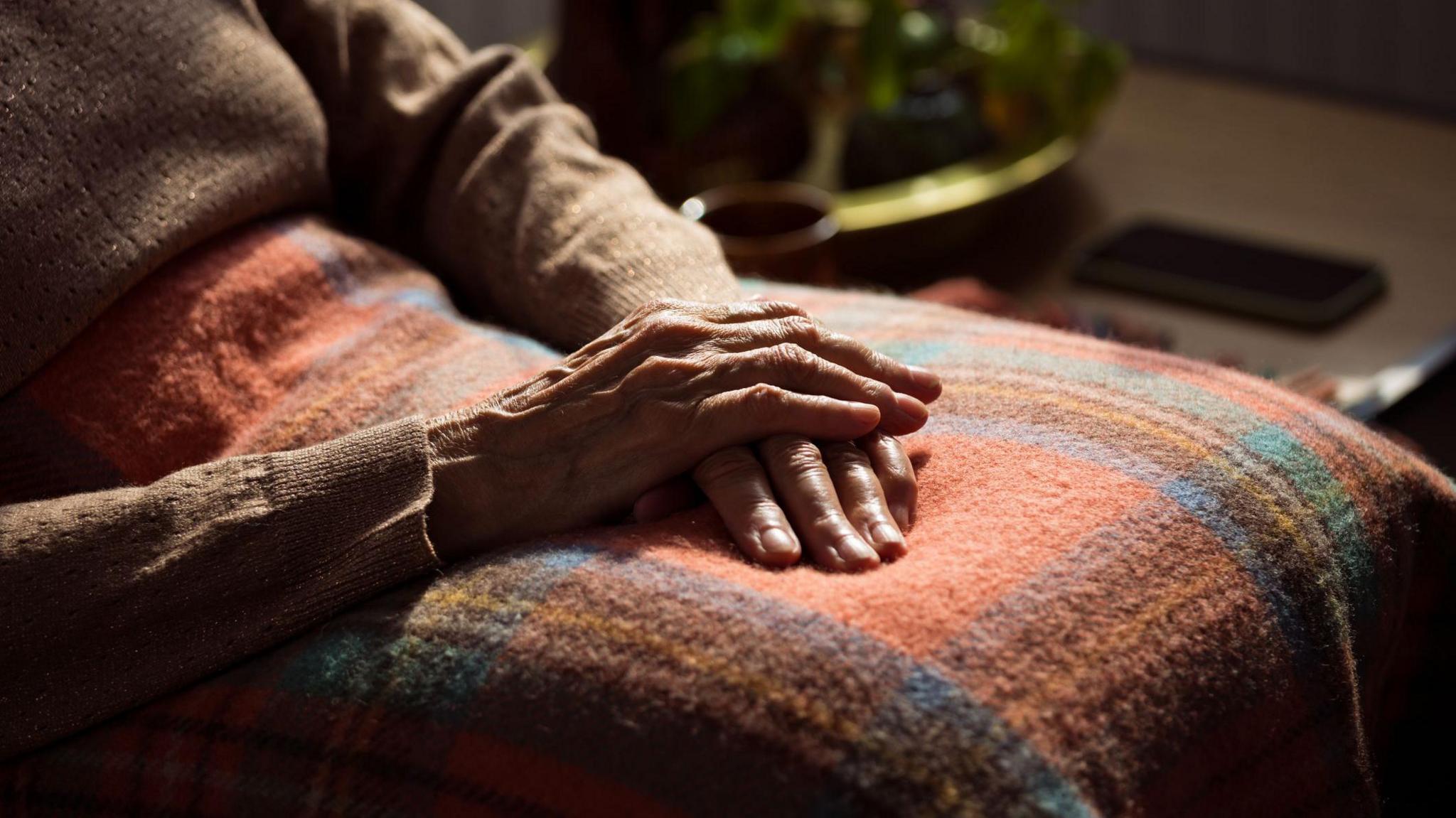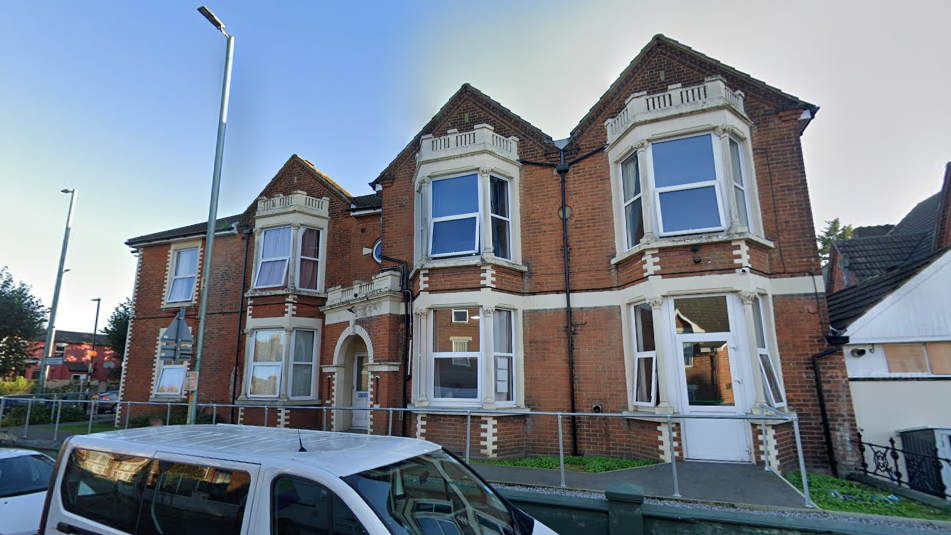Three learning disability wards told to improve

Rose Lodge in Hebburn, South Tyneside, was one of three wards to receive a "requires improvement" rating by the CQC
- Published
Three NHS wards caring for people with learning disabilities or autism have been told to improve after a high number of assaults on staff and injuries to patients.
Care Quality Commission (CQC) inspectors visited the wards in Northumberland, South Tyneside and Cumbria last year and said it had "significant concerns" about how restraints were used on patients.
One family member told inspectors they felt their relative was "not safe" while on the ward and "staying there was making him worse".
Cumbria, Northumberland, Tyne and Wear NHS Foundation Trust said patient safety was a "top priority" and it was working to make improvements.
The CQC inspection was triggered after the watchdog was notified of a high number of injuries to staff working at Mitford Unit at Northgate Hospital in Northumberland. Rose Lodge in South Tyneside and Edenwood at the Carleton Clinic in Carlisle were also assessed.
In December 2023, the trust reported 799 physical assaults on its workers and said "the level of violence staff had been subjected to posed a risk of serious harm".
During the assessment in July 2024, inspectors were told by workers "some colleagues were not experienced, unskilled and often 'ran away' from incidents leaving other staff and service users at risk of harm".
Use of restraint
Inspectors said they were concerned about the use of prone and mechanical restraint on patients. Prone restraint involves holding a person chest down, while mechanical restraint is the use of a device such as a belt or cuff to subdue someone.
Over 12 months, mechanical restraint was used 52 times on patients in the Mitford Unit, while prone restraint was used 518 times on 12 patients across all three wards.
The CQC said the trust had approved the use of mechanical restraint outside of a secure setting, contrary to National Institute of Clinical Excellence (NICE) guidance, but no rationale was given about why this decision was made.
Inspectors also found patients had suffered 491 injuries during the year but there were no records of how they were sustained or whether they occurred during restraint.
One patient had suffered 105 injuries, while another had 47.
"The number of safeguarding referrals did not reflect the high number of incidents recorded," the report said.
It said leaders on the ward had not ensured people were safeguarded as a result of being harmed and inspectors were concerned not all staff had received safeguarding training.
'Making progress'
The CQC visited again in September 2024 to check on the progress of improvements the service was told to make, and said it felt assured the trust had a "robust plan" to address concerns.
The watchdog gave the wards a "requires improvement" rating.
The trust's executive director of nursing, therapies and quality assurance Sarah Rushbrooke said: "Following the concerns raised by the CQC after their inspection in July last year, we worked hard to quickly make improvements.
"We are pleased that the CQC recognised the progress made when they re-inspected services in September. We are also keeping the CQC regularly informed of our ongoing work to make further improvements."
Follow BBC North East on X, external and Facebook, external and BBC Cumbria on X, external and Facebook, external and both on Nextdoor and Instagram, external.
Get in touch
Do you have a story suggestion for BBC North East & Cumbria?
Related topics
- Published16 April

- Published9 April
